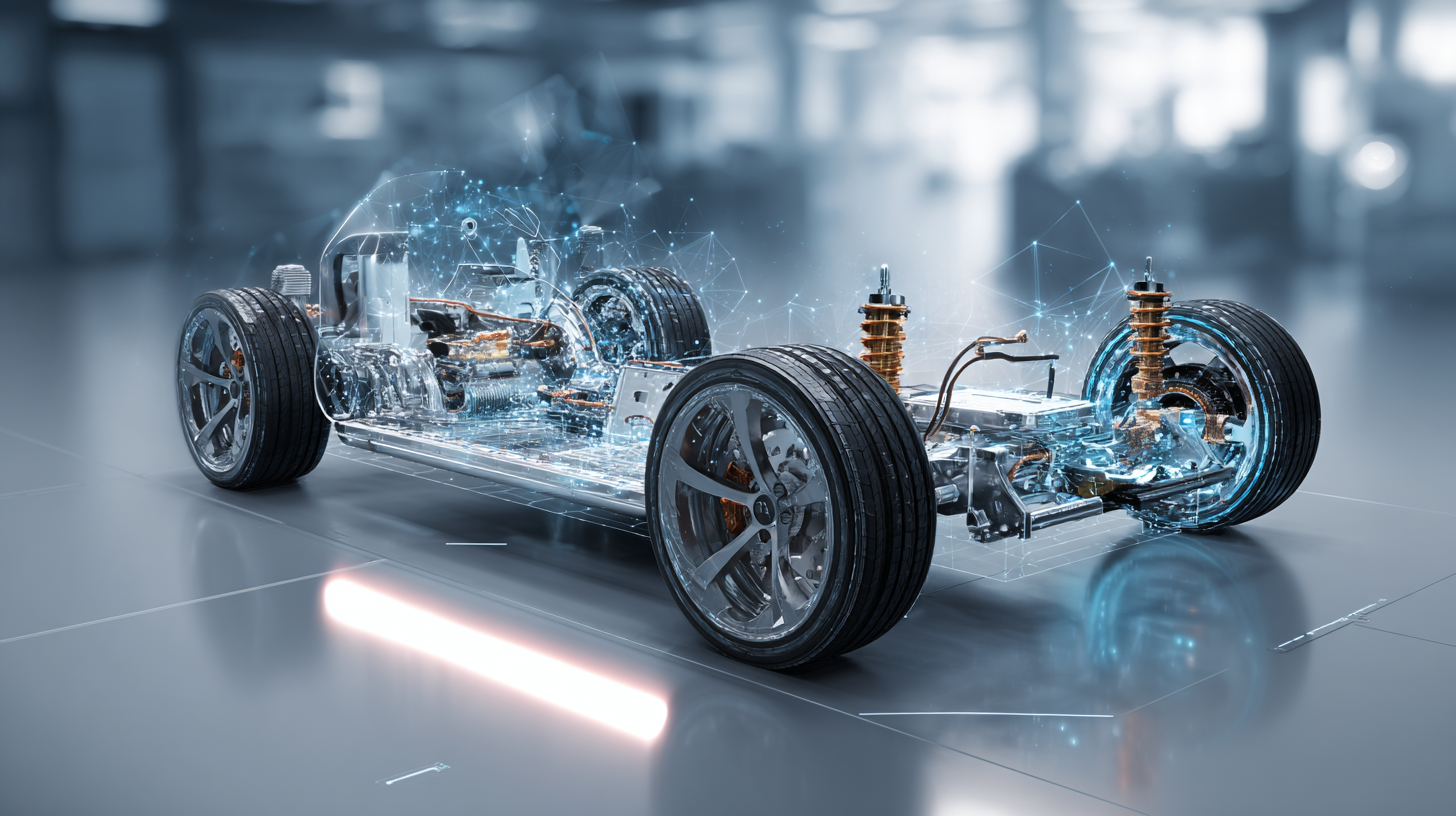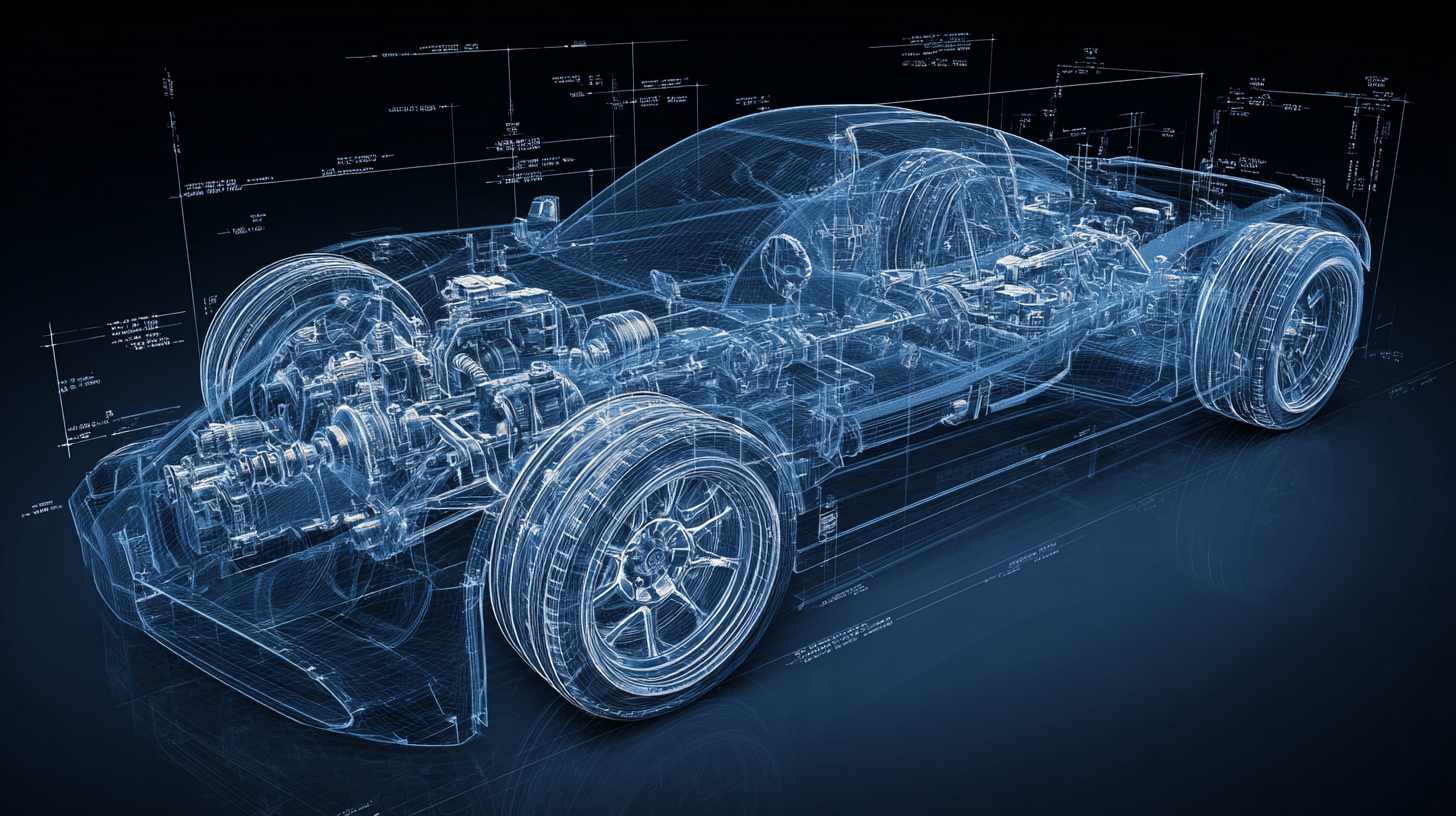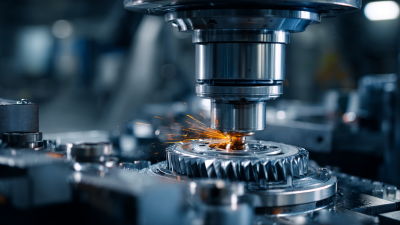Ultimate Guide to Mastering Automotive Mechanical Engineering for Future Innovators
The automotive industry is undergoing a significant transformation, driven by advanced technologies and the increasing demand for sustainable solutions. In fact, a report by the International Council on Clean Transportation (ICCT) indicates that electric vehicles (EVs) are expected to make up 54% of global car sales by 2040, underscoring the vital need for skilled professionals in the field of automotive mechanical engineering.

As future innovators, mastering this discipline is essential for developing cutting-edge vehicles that prioritize efficiency, safety, and environmental impact. This ultimate guide is designed to equip aspiring engineers with the necessary insights and practical tips to excel in automotive mechanical engineering, paving the way for a successful career in one of the fastest-evolving sectors today. Through a comprehensive exploration of current trends and technologies, we aim to inspire a new generation of engineers ready to tackle the challenges of tomorrow.
Understanding the Fundamentals of Automotive Mechanical Engineering: Essential Concepts and Skills
Automotive mechanical engineering is a critical field that serves as the backbone of the automotive industry. To truly grasp the fundamentals, budding engineers must focus on essential concepts such as thermodynamics, fluid mechanics, and materials science. According to the Bureau of Labor Statistics, employment in the automotive engineering sector is projected to grow by 4% from 2019 to 2029, highlighting the increasing demand for skilled professionals equipped with these foundational skills. Understanding how internal combustion engines operate, alongside emerging technologies like electric and hybrid systems, is imperative for future innovators.

Moreover, hands-on skills are integral to mastering automotive mechanical engineering. Proficiency in computer-aided design (CAD) and simulation software is increasingly important, with a 2020 report by Engineering News-Record indicating that 78% of automotive companies have adopted digital technology in their design processes. As the industry pivots towards sustainable solutions, engineers must be well-versed in alternative powertrains and lightweight materials to enhance efficiency and reduce emissions. Acquiring expertise in these areas will not only prepare engineers for a rapidly evolving automotive landscape but also position them as leaders in innovation.
Exploring the Latest Innovations in Automotive Technology: Trends and Future Directions
The automotive industry is undergoing a profound transformation, driven by the advent of groundbreaking technologies. According to a report by McKinsey, the global automotive technology market is expected to reach over $1 trillion by 2030, largely fueled by advancements in electric vehicles (EVs), autonomous driving systems, and smart connectivity. Innovations in battery technology, such as solid-state batteries, are projected to enhance vehicle range and reduce charging times, making EVs more appealing to consumers.
As we look toward the future, the integration of artificial intelligence (AI) in automotive engineering remains a key trend. AI-driven systems can optimize manufacturing processes, enhance vehicle design, and improve safety through advanced driver-assistance systems (ADAS). Industry leaders like Tesla and Waymo are already utilizing AI to refine their self-driving algorithms, highlighting the significant potential for innovation in this area.
**Tip:** For aspiring automotive engineers, keeping abreast of these technological trends is crucial. Engaging in online courses focused on AI and machine learning specific to automotive applications can provide a competitive edge in your career.
**Tip:** Networking with industry professionals through conferences and seminars is invaluable. These events offer insights into emerging technologies and can lead to collaboration opportunities that propel your career forward in this fast-evolving field.
Automotive Technology Innovations: Trends and Future Directions
Key Software Tools for Automotive Engineers: Enhancing Design and Simulation Efficiency
In the rapidly evolving automotive engineering landscape, the demand for effective decision-making tools and simulation software is more pronounced than ever. As companies strive to mitigate the risks associated with complex systems and processes, simulation software emerges as a vital solution. By utilizing advanced modeling techniques, these tools enable engineers to identify potential bottlenecks and weaknesses early in the development cycle, subsequently enhancing the overall efficiency of design and production processes. Embracing such technology not only fosters a culture of innovation but also supports manufacturers in navigating the intricate automotive lifecycle.
The integration of artificial intelligence further enriches the capabilities of simulation software across various domains, such as radio frequency and antenna design. AI applications streamline processes like circuit design and antenna shape optimization, ultimately resulting in higher performance and more efficient electromagnetic simulations. Additionally, the growth of cloud-based digital twin solutions facilitates real-time data analysis and process management, allowing manufacturers to adapt swiftly to market changes and enhance operational efficiencies. As the automotive industry moves towards more sophisticated software-defined vehicles, the role of these key software tools in risk assessment and design optimization will be crucial for driving competitiveness and success in the future.
Data-Driven Decision Making in Automotive Engineering: The Role of AI and Machine Learning
In the rapidly evolving field of automotive engineering, data-driven decision-making has become paramount. The integration of artificial intelligence (AI) and machine learning (ML) technologies has revolutionized how automotive engineers analyze data, enhance design processes, and improve safety features. Recent reports indicate that the global AI in the automotive market is projected to reach $14.67 billion by 2027, growing at a compound annual growth rate (CAGR) of 41.4% from 2020. This surge underlines the increasing importance of AI in optimizing vehicle performance and driving innovation.

Machine learning algorithms are transforming the way engineers approach problem-solving by enabling predictive maintenance, improving manufacturing efficiency, and enhancing user experiences. For instance, research from McKinsey highlights that machine learning can reduce vehicle engineering costs by up to 30% while improving product development timelines. By harnessing these advanced technologies, automotive innovators can leverage actionable insights derived from vast datasets to streamline operations and tailor their offerings to meet the ever-changing demands of consumers. With AI and ML at the forefront, the future of automotive engineering looks promising, empowering engineers to push the boundaries of what is possible.
Sustainability in Automotive Engineering: Strategies for Eco-Friendly Innovations and Practices
The automotive industry faces a significant transformation as sustainability becomes a driving force behind innovation. To foster eco-friendly practices, engineers must prioritize the development of technology that minimizes environmental impact. This can be achieved by utilizing alternative materials, such as biodegradable composites and recycled metals, which not only reduce waste but also enhance the efficiency of manufacturing processes. Additionally, the design of vehicles must evolve to incorporate energy-efficient systems that decrease fuel consumption and emissions, aligning with global environmental goals.
Another essential strategy is the integration of renewable energy sources into automotive engineering. Innovators are exploring electric and hybrid vehicle technologies that rely on clean energy, drastically reducing the carbon footprint associated with traditional gas-powered vehicles. Furthermore, advancements in battery technology, such as improvements in charging efficiency and energy density, contribute to making sustainable vehicles more accessible and appealing to consumers. By adopting these practices, the automotive industry can not only meet regulatory standards but also drive the market towards a greener future, paving the way for innovative solutions that prioritize both performance and environmental responsibility.
Related Posts
-

China's Quality Evolution in Automotive Mechanical Engineering Driving Global Demand
-

Exploring Innovative Alternatives in Machine Engineering for Enhanced Efficiency and Productivity
-

The Future of Best Mechanical Manufacturing Innovations and Trends
-

Exploring the Essentials of Auto Mechanical Engineering Processes
-

Unveiling Secrets to Source Premium Suppliers in Best Machine Engineering
-

The Evolution of Civil Engineering Machines Shaping Tomorrow's Infrastructure
